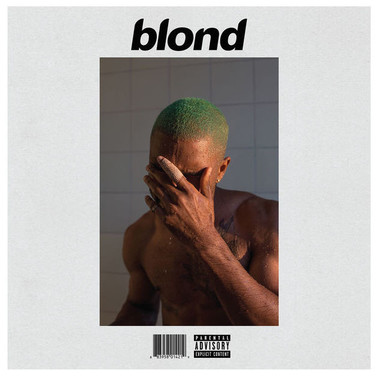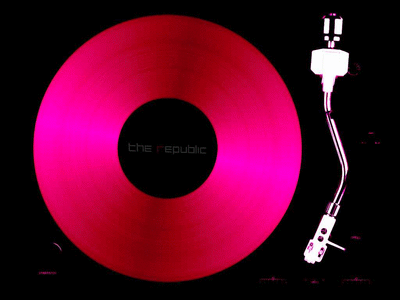
Likes: Self Control, Solo (Reprise), Close To You
Dislike: Nike, Ivy, Seigfried
Overall: A quasi-artistic album of avant-garde filler, with occasional melodic promises that only prove to delude the listener.
The incomparable Janet Jackson once said, "There's something to be said for not saying anything." I'm starting this review with this quote because it's the "something to be said" for Frank Ocean's "not saying anything" sophomore LP Blond (the French spelling of the masculine adjective “blonde”). After a 4-year sabbatical being an elusive chanteur, Ocean comes back with a left-field sounding, scandal-inducing and highly underwhelming double release (Blond comes with a visual album entitled Endless that was essentially a throw-away project he made to scam his label, à la Joanne The Scammer). Although there are genuine instances of harmonic and melodic beauty (ex. "Self Control), as well as insightful lyrical realizations (ex. "Nights" discusses cowardice and hypocrisy in equality pursuits), you can't fully appreciate them for being bombarded by their monotonous and aimless surroundings. The 10% of beauty and "ah ha!" moments aren't worth enduring the 90% of gloomy (yet airy) and repetitive production choices, and extensive, droning verses that might as well be him talking. Scam.
When he's actually singing, Ocean sounds amazing. The vocal performances throughout the record were for the most part entrancing, especially when he emotes. His lower register takes the cake over his higher chest and head voice. In some cases, he uses his voice in more unconventional means, such as purposefully singing out of tune or using the "Prisimizer" effect in "Close to You" (an effect that manipulates a single vocal and produces synthesized harmonies in sync with that vocal). The production is evasive, but not entirely unattainable. I acknowledge this style of music isn't so far beyond the realm of being listenable, and it can be done in an effective manner. Although it doesn't suit my personal taste, it has an interesting quality where you can get used to it after the initial shock of lacking rhythmic percussion and the overuse of simplistic, ceaseless chord progressions wears off. Since it takes up to half of the album for this sensory adaptation to occur, re-listening to Blond will be required.
It would be erroneous to not also acknowledge that Frank Ocean is a genius as it pertains to creativity and album concepts. The subtle touching on various subjects, like sexuality, race, religion, drug use and self-worth in the face of meaningful, but unhealthy relationships (friendships, familial and romantic) are worth noting. It's clear that he had a direction in compiling this body of work. The problems, however, are painstakingly obvious and Ocean's genius wasn't enough to cover them. This project was too big of an endeavor for him at this time, as he doesn't seem to have a fully-developed artistic identity yet. It can be assumed that Frank has a perception of himself that doesn't necessarily translate well on wax. Take for instance the opening song, "Nike," a commentary on the consumerist and materialistic social climate that has affected our psyche. The beginning lines make the song's point clear, but Ocean ends up rambling in a stream of consciousness, going from bragging about his sexual performance (i.e. "But if you need dick I got you...") to referencing the unlawful death of teen Trayvon Martin literally two lines afterwards. Further, the Martin lyric is purposively aware, but is a crass dismissal of the racial climate that lead to his death (i.e. "RIP Trayvon, that ni**a look just like me"). It's not that Frank can't pull a record of this caliber off; I just don't think he has the tools in his arsenal right now to make it happen in such a way that will leave people in awe or with a changed perspective on life.
The record's biggest--and the most re-playable--highlight is Andre 3000's "Solo (Reprise)" interlude, where he elaborately and effectually conveys the frustration and conflicts of blackness and racism in America, and approaches materialism, personal restlessness, lyricism in hip hop, and the contradictory perceptions men have of women. His trigger-happy delivery in this barely 1-minute reprise single-handedly outdoes Ocean's entire attempts at the same topics, which isn't shocking since Andre 3000 has been in the industry for 20 years, has a clearly developed identity, and the capacity to push the limits without going over his intended audiences' heads. Ocean does have his shining moments, such as the harmonies that accompany the barely audible, low-throbbing bass at the end of "Skyline To." Musically, the second-half of "Nights" is the closest he gets to commercial, but there's enough edge in the piano jazz chords and bass synths to feel fresh. "Self Control" is the most beautiful track: it has a certain vulnerability, hopelessness and wrongness in the lyrics and vocal delivery, along with a palpable guitar accompaniment. The low synth, strings, muffled guitar solo, and layered 3-part harmonies echoing, “I know you gotta leave...” fill the sonic space with an almost ethereal quality. It's an invigorating shift from the static structure of the prior songs that go hardly anywhere musically from where they begin.
Although the minimalist approach falls short as far as effectiveness is concerned, there is one particular instance where it proves to be a great asset--"Close to You", which is an ingenious remake of Stevie Wonder's cover of The Carpenter's hit of the same name. I'm curious as to what the result of this song would've been if it weren't a makeshift interlude, because the numbness and disappointment in Ocean's voice is stunning and it pierces through the song's heavy effects. It also brings the tumultuous relationship storyline to the forefront in a way that actually feels relatable for once, rather than distant or indecipherable.
All in all, Ocean bit off more than he could successfully chew with Blond. Though his aptitudes and gifts headlined, his flaws and inadequacies as an artist were the showstoppers. A lot of the themes Frank tried to cover need to be addressed in this day and age, so it's unfortunate there isn't anything new to personally reflect on. This album proves that just because something is "different" in sound, it doesn't innately make it more "artistic" or intrinsically "classic." Frank Ocean managed to fill up what would have been a conceptually firm hour with nonsensical, avant-garde filler, static musicality and undertones of smug quasi-artistry. Hopefully, this will merely be a stepping stone he uses to find a balance between his talent and musical expression, but as of now, the two rarely intersect.


 RSS Feed
RSS Feed